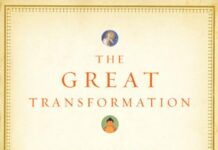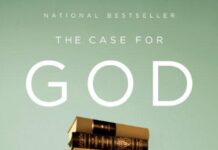
Ebook Info
- Published: 2014
- Number of pages: 530 pages
- Format: PDF
- File Size: 3.84 MB
- Authors: Karen Armstrong
Description
A sweeping exploration of religion and the history of human violence—from the New York Times bestselling author of The History of God • “Elegant and powerful…. Both erudite and accurate, dazzling in its breadth of knowledge and historical detail.” —The Washington PostIn these times of rising geopolitical chaos, the need for mutual understanding between cultures has never been more urgent. Religious differences are seen as fuel for violence and warfare. In these pages, one of our greatest writers on religion, Karen Armstrong, amasses a sweeping history of humankind to explore the perceived connection between war and the world’s great creeds—and to issue a passionate defense of the peaceful nature of faith. With unprecedented scope, Armstrong looks at the whole history of each tradition—not only Christianity and Islam, but also Buddhism, Hinduism, Confucianism, Daoism, and Judaism. Religions, in their earliest days, endowed every aspect of life with meaning, and warfare became bound up with observances of the sacred. Modernity has ushered in an epoch of spectacular violence, although, as Armstrong shows, little of it can be ascribed directly to religion. Nevertheless, she shows us how and in what measure religions came to absorb modern belligerence—and what hope there might be for peace among believers of different faiths in our time.
User’s Reviews
Reviews from Amazon users which were colected at the time this book was published on the website:
⭐Karen Armstrong should not need another introduction. She left behind her life as a Roman Catholic nun to devote a lifetime studying world religion, and she becomes one of the greatest religious scholars that has ever lived in the process. She is now, in her own words, a “freelance monotheist”, and it is reflected in her careful, respectful and unbiased way of writting on every different religion. This book is another testament on this deep care and her range of knowledge on the subject matter. Fields of Blood seemingly discusses every single violence conducted in the name of religion, from ancient societies like the Summerians, the Assyrians, the Egyptians, the Greeks, Zoroastrians, Confucian, to the Abraham religion and the many religions in the Sub Continent, to the era of first secular states (the US and post-revolution France), until the rise of Zionism, the current “war on terror” era and the most recent rise of ISIS. Within this scope, she masterfully narrated on the politics, the struggles and the social interactions in each one of those eras, and explains us the gradual and intricate evolution of religion from the time religion, state and daily lives have not been separated yet, into the religion as we know it today.The book is so full of information and so airtight, however, that it can sometimes feel a little too complicated and unecessarily detailed. But I believe it is not meant to be memorised but rather to give us the big picture of how massively complex religious evolution is.As always, Ms Armstrong focused on the historical facts rather than the mystics or the folklores, and thus some may find the revelation in the book unsettling, such as the degree of editing the Bible experienced, or how Islamic Hadits were conveniently tailored, or the mysterious discovery of questionable scrolls containing the teachings of Moses for the Jews, despite the fact that during Moses’ time in 8th century BC teachings were taught verbally rather than in writting – all of which have 1 underlying purpose: to match the rulers’ political needs at the time. And this is the central thesis of the book, where all violence that are conducted in the name of religion are all ultimately man made. And the scripture-based justification that comes with them are nothing short of a political doctrine, not much different than the atheist doctrines by Hitler, Stalin and Mao.As Karen Armstrong herself puts it “terrorism is fundamentally and inherently political, even when other motives—religious, economic, or social—are involved. Terrorism is always about “power—acquiring it or keeping it.” And so, according to one of the pioneering experts in the field, “all terrorist organizations, whether their long-term political aim is revolution, national self-determination, preservation or restoration of the status quo, or reform, are engaged in a struggle for political power with a government they wish to influence and replace.”” Indeed, our main focus when it comes to religious violence should not be the religion, but what have happened in that specific occurance that created violence in the name of religion. And to that end, learning from this book, there seems to be a pattern where all root causes of violence eventually come from these 4 stages: 1. A group of minority are treated unfairly or even oppressed 2. A leader emerged among them to fight for their cause, which originally preach non-violence 3. Only to be crushed by those in power, pushing them further into the edge and force them to be radical 4. And so they launch their radical offensives, justifying their violent acts by (mis)quoting their Holy Book and fitting their oppressor into their doctrine (i.e. Infidels, the devil, etc).Karen Armstrong then elaborate, “the claim that the primary motivation of a terrorist action is political may seem obvious—but not to those who seem determined to regard such atrocious acts of violence as merely “senseless.” Many of that view, not surprisingly, find religion, which they regard as a byword for irrationality, to be the ultimate cause.” Questioning which religion is more violent than the other is, therefore, completely missing the point. Although she did admit that “this, of course, is not to deny that religion has often been implicated in terrorist atrocities.” But nevertheless, “it is far too easy to make it a scapegoat rather than trying to see what is really going on in the world.” There are thousands more words that can be written in this review, with thousands specific examples can be derived from this book. It is indeed the hardest review I’ve written so far, simply because there are so many great things about the book, and so many important points that I want to cover but could not possibly fit them all in just one short review. It is definitely one of my top 10 books to read to understand how the world really works. It is trully a masterpiece.
⭐Karen Armstrong, a former nun and a prominent religious British historian, has written the most erudite and comprehensive history of Christianity and it’s tendency toward violence.Without going into too much detail as I am still reading this astonishing book, I am truly astonished with the fact that violence has permeated Christianity throughout it’s existence.Most Christians do not question the history of their religion and take it as face value, but here Armstrong gives us a deep look into how Christianity came to dominate the world and permeated all of society.
⭐This book addresses an assumption widely held in the West today, that religion is the cause much if not most of the strife in the world , and has indeed been so throughout history. I have tended to share that view. A quick survey of history, from the Crusades through the Wars of Religion right up to Islamic State, certainly seems to provide evidence. Ms. Armstrong, however, picks apart the apparent causality through a extensive survey of the history of warfare, in tandem with a review of what various holy texts have said about war. After reading her book, I was at least 75% convinced that I had been wrong: that religion like violence are parts of being human that often overlap, but that religion does not cause violence.The book proceeds forward through time from the Neolithic to today, and as it does one of Ms. Armstrong’s key points emerges. It is only for the past two hundred years or so, and only in the West, that religion has been separated from the state, to become a private matter for the individual conscience. Through most of history, the state and religion of been interlinked, and religion has been essentially public, evinced in rituals that were at the heart of social relations. Protestantism introduced the idea of religion as a personal, non-mediated choice, and in time the Enlightenment enshrined tolerance and the separation of church and state. But this is very recent: through most of history, religion and politics and social relations and warfare have been inextricably linked. Ms. Armstrong also points out that secularization has not ended warfare — far from it. The 20th century saw the most horrible and destructive wars in history without much religious involvement. Indeed, these wars were characterized by the replacement of religion by the quasi-religion of the nation state.Her survey of religious texts shows clearly that no major faith is unequivocally violent, or non-violent. In parts of the New Testament, Jesus calls upon us to turn the other cheek. In others, he brings not peace but a sword. The Koran has sections that praise peace and tolerance, and others that call for war on unbelievers. Rather, religion becomes a motive for war when other forces are pushi in the same direction; when that happens, a justifying text is always available.Finally, Ms. Armstrong’s analysis argues convincingly that the linkage of violence and religion in recent years, particularly in the Middle East, reflects in large part wrenching social and political change. Moreover, with a very few exceptions, that change did not emerge from within countries or societies, it was imposed upon them by colonial powers. This has contributed to a perceived link between modernity and Western imperialism, which in turn contributed to a turn to what was presented as traditional faith as part of a rejection of the West and all its works. When combined with a powerful sense of grievance, this has led to frightening results.. She is not attempting to justify Islamic violence, but she does argue that it can be understood.This book did not engross me quite so much as some of Ms. Armstrong’s earlier works, particularly “The Case For God”. Some of the earlier part of the history section drags a bit. Also, there are instances where I think religion was more of a motivating force than she assumes, particularly the European Wars of Religion.Overall, however, “Fields of Blood” has many virtues. It is commendably readable given the weightiness of its topic. It is carefully researched and documented. And, most important, it is a convincing argument against an assumption that could become very dangerous. If we in the West decide that religion — or one religion — is the main reason for violence aimed against us, we could take action against people solely because of their religion.
⭐This hefty tome provides detailed explanation into the roots of violence with respect to the Hebrew understanding, how the Old Testament may have incorporated visions of violence for the ‘warrior God’, how Jesus sought to use transformative love rather than direct violence, the story of Islam, and the use of violence with the Medieval Church. It was a great book to read. One to refer back to.
⭐Thoroughly well-researched and balanced exposition of the manifold, intricately-linked factors that have contributed to violence from ancient times to the modern era. Unlocks and dispels the misconceptions and oversimplifications that are all too common in contemporary attitudes. Highly recommended, along with everything else that I have read by this astounding author.
⭐you need a magnifying glass to read this copy of Karen Armstrong’s book! Printed in ridiculously small script to reduce the number of pages and save on print costs, this version is a trial, not a pleasure to read!
⭐Karen Armstrong has a unique ability to both interpret this most difficult of topics while at the same time being able to write a compelling text that carries the reader along. She is a remarkable talent that can only educate everyone that takes the time to read what she has to say.
⭐A fascinating read, though fairly heavy going. I enjoyed dipping into it rather than reading the book from cover to cover.
Keywords
Free Download Fields of Blood: Religion and the History of Violence in PDF format
Fields of Blood: Religion and the History of Violence PDF Free Download
Download Fields of Blood: Religion and the History of Violence 2014 PDF Free
Fields of Blood: Religion and the History of Violence 2014 PDF Free Download
Download Fields of Blood: Religion and the History of Violence PDF
Free Download Ebook Fields of Blood: Religion and the History of Violence



